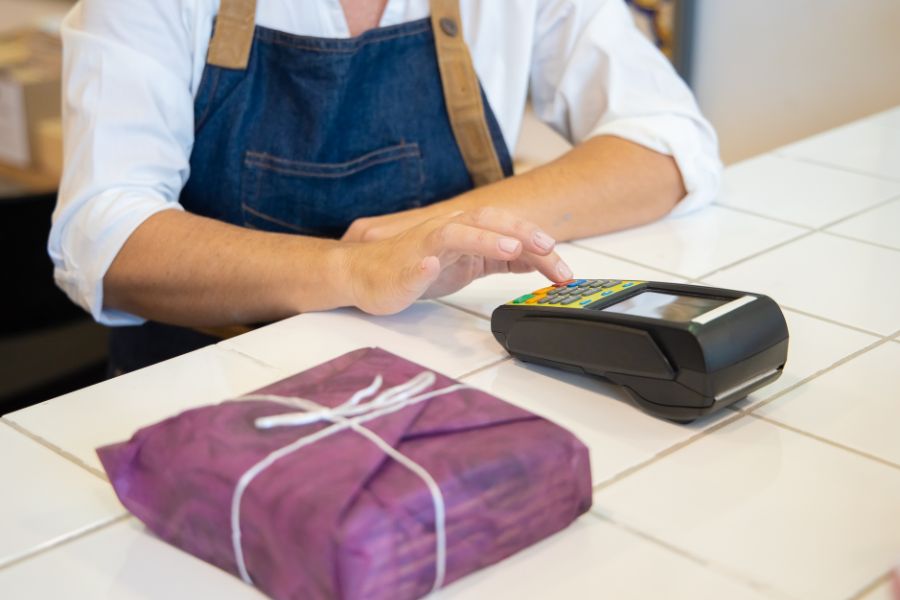Artificial intelligence (AI) is gaining popularity in the retail industry. The reason for this is simple: Today’s merchants can gather huge quantities of data on customer purchases and interactions, both online and in physical locations. Simultaneously, they must make billions of decisions to align their inventory, capacity, and personnel with ever-changing customer demand. These factors led to a trend for using AI in retail. This blog will discuss everything you need to know about how Implement AI In Your Retail Store can be used in the retail industry.
What is AI?
In retail, artificial intelligence (AI) entails the use of automation, data, and technology such as machine learning algorithms to provide consumers with highly customized shopping experiences. Consumer experiences in both physical and digital businesses can benefit from AI.
AI is all about turning data into insights, which guide actions that improve company results. The use of AI in retail, such as machine learning and deep learning, is essential to providing these insights. For retailers, this means great customer experiences, revenue growth prospects, rapid innovation, and smart operations—all of which help you stand out from the competition.
Benefits of using AI in retail
So what exactly can AI do to support retail businesses? Here are the 3 most dominant advantages of using AI in retail.
More effective operations
Many businesses have attempted to optimize their supply chains in search of the best route options. AI algorithms provide recommendations for the best strategy to use, removing the human component from the process.
Robotic power is being used for picking and packaging in the order fulfillment process. Furthermore, robots can work together to pack larger shipments. Thanks to the early assessment of future purchasing trends, the number of product returns can be decreased. Algorithms look at past transactions, searches, and even weather patterns to predict what may come in the future.
Personalized marketing
According to a survey of over 3,000 customers in North America, 63% of people anticipate personalized services and promotions/offers that are targeted to their specific needs. By combining data streams from different sources and detecting actionable trends, AI may assist you in achieving this goal.
This is especially useful in the case of eCommerce. A website user will spend time browsing products, visiting links, exploring various catalog pages, and adding and deleting things from the shopping cart. This type of activity can provide useful information for eCommerce marketing. The AI customization engine examines visitor behavior and adjusts advertisements accordingly.
Higher customer satisfaction
AI can now assist retailers in providing excellent service to customers in a variety of circumstances, ranging from automated checkouts to consumer mood tracking. With technology, you can ensure that each visitor receives sufficient attention and advice before making a final decision. It will lead to increased consumer satisfaction in the long run.

Examples of AI used in retail
Automated checkout
Firstly, AI was designed to improve the consumer experience by overcoming the restrictions of traditional checkout systems.
The basis of this invention is computer vision, which is incorporated into the store’s cameras and installed in various locations across the area. Because it is linked to the stock database, the system identifies the goods picked up by the visitor. When leaving the shop, a client can pay for their items using a smartphone and an app account or a credit card.
A good example of this is Amazon. ‘Just Walk Out Technology’ was developed by Amazon to eliminate the necessity for cashiers in stores. When customers arrive at a store, they must use the Amazon app to scan the “In-Store Code.” Shoppers then select items from their list as in any other store. At this moment, computer vision sensors recognize items removed from the shelf and track them in the cart. Customers are allowed to leave after their purchasing is completed; they will be paid later through their Amazon account.
Personalized product suggestions
AI is now more widespread in online retail than it has ever been. It is similar to YouTube or Netflix recommendations. Artificial intelligence has helped these platforms suggest suitable options for each customer, based on their activities.
But do you know that this function is also available in offline stores as well? ConnectPOS, a point of sale provider with AI Facial Recognition, can identify customers as soon as they walk in, even in crowded scenes with multiple faces. The customer’s name, type, purchase history, and spending are all included in the notifications provided to sales assistants. If you are interested in this top-notch feature, don’t hesitate to contact ConnectPOS’s team for more information.
Visual search
With AI in retail, people can use visual search to upload images of an item they want and receive goods with comparable colors and forms. This is a fantastic tool for large shops with diverse product offerings. You’ll be able to satisfy the expectations of consumers who know exactly what they want. Visual search is the quickest method to go from a request to a completed transaction.
A good example of visual search is eBay, which allows users to take a picture of the item they want. After that, the app’s algorithm scans roughly 1.5 billion listings in under a second to offer a user a selection of similar goods in stock.
Virtual fitting room
Standing in line to go into a dressing room, then trying on every piece of clothing – this is an aspect of the shopping experience that not everyone enjoys. In the context of the COVID-19 pandemic, the issue stands out even more.
People don’t have to leave their houses to find a suitable item or outfit thanks to virtual fitting rooms. The item is placed on the customer’s picture using AI technology to gain a better idea of the size, style, and color.
Many clients, especially those who shop online, are on the lookout for the ideal tone shade. With Sephora’s Shade Finder, it’s even easier. It’s a website-based instrument that requires the user to enter various parameters before selecting a tone from a list of recommendations. The current brand, formula, and shade are the parts of the parameters. If customers are having trouble deciding on a formula, they may take a questionnaire to determine the features of their ideal foundation.
Customer satisfaction tracking
Another key function of cameras strategically positioned around your business is mood tracking. Employees at the store can’t keep track of every customer, but AI systems can. When your staff receives a warning about an upset customer, they can approach them right away. This innovation increases customer happiness and grows your devoted audience more quickly than traditional approaches.
Walmart, a leading retail company in the US, uses video cameras in shop checkout lines to watch customers’ facial expressions and motions in order to detect varying levels of dissatisfaction. If the system identifies a dissatisfied client, it will alert staff in other areas of the store, instructing them to report to a checkout register in the hopes of easing the consumers’ distress.
Wrapping up
The benefits of AI in retail are clear now, so why not try out the top AI functions with ConnectPOS? We offer a 14-day free trial for the most realistic experience – it’s time to upgrade your store to the next level!
ConnectPOS is a all-in-one point of sale solution tailored to meet your eCommerce POS needs, streamline business operations, boost sales, and enhance customer experience in diverse industries. We offer custom POS with features, pricing, and plans to suit your unique business requirements.




